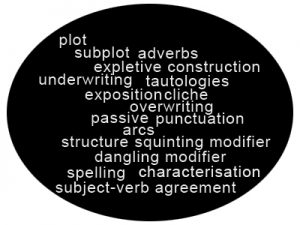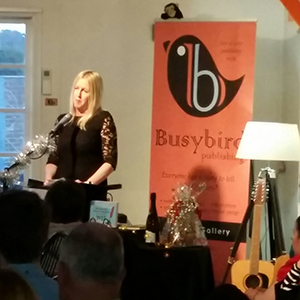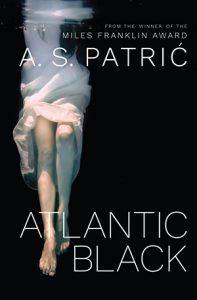

Blog
Welcome to the Busybird blog, where you can find helpful articles, updates, industry news and more. Make sure you stay up to date by signing up to our newsletter below.
A 10-Step Process for Revision
January 25, 2018 How do you approach revision? Do you just sit down and trust your instincts? Do you just let whatever happens happen? The chances are if you have a haphazard approach, you’ll have haphazard results.
How do you approach revision? Do you just sit down and trust your instincts? Do you just let whatever happens happen? The chances are if you have a haphazard approach, you’ll have haphazard results.
When revising, you should have a plan. You should have a methodical approach that’ll cover all the requirements of the revision.
Here’s the ten-step process I use …
10. Read Your Work Until You’re Sick of It
If you think that first draft is great, you’re kidding yourself. The first draft is a spill. This is where you just need to get everything out. It might contain the potential for greatness, but it’s going to need work.
Read it, reread it, and keep doing that until you can get no more out of it.
9. Put Your Work Away for a Period
Sometimes, deadlines don’t allow us this leeway. But, if you can, put your work away – for a minimum of one week, but for as long as three months (or longer) if possible.
When you finally go back to it, it should be with a fresh perspective. You might’ve even come up with a few new ideas during the interim. Often, stepping away from your work – and removing that pressure to produce – frees your imagination.
8. Start Reading and Rereading Again
Attack your work with a new vigour. If you’ve given yourself enough time, it’ll be like reading something for the first time. This’ll help with your objectivity.
7. Send It Out to Alpha Readers
Develop a network of like-minded people with whom you share your work and exchange feedback. Make sure they’re people you respect, and who understand what you’re trying to do. They don’t have to be writing the same genre as you to provide good feedback. But do be conscious of people who specialize in a certain genre, and read everything through the filter of that genre, e.g. they only read romance, and expect everything else they read to be written the same as romance would be written.
6. The Feedback Revision
You should now have some feedback to focus on. Get back to revising. Address every point. Even if you don’t agree with feedback, consider why that feedback was offered. Is there something about that particular point you should consider, even if it’s a different facet of it? If more than one person has given you the same feedback, then it’s probably valid.
5. The Double Read
Read a chapter, then read it again. The first read is just to familiarize yourself with everything and where it’s all heading, and the second time is to address it with that familiarity fresh in your mind. Just because you’re the author doesn’t mean you’re going to remember every line you’ve written. This double-reading technique imprints the prose on your mind on the first pass so that you can revise with abandon on the second.
Finally, don’t do too much daily – only about twenty or pages or so (which will actually amount to forty pages or so when you read everything twice). The mind tires easily, so it’s best to stagger the digestion of the material.
4. The Red Edit – Structure
Change the colour of the font to red. This forces the brain to process the information differently. If possible, change the font also. Examine how your writing works as a whole. Does it make sense? Are you delivering your information in the best way to communicate your message? Are your characters layered? Are they necessary? Are there areas that are overwritten which could be more succinct? Etc. Be merciless. Test your writing’s defenses and exploit it’s weak spots. If, at any time, your response to a query is, I think it’s okay, then it’s likely it’s not okay.
As with the double read, try not to do too much daily.
3. The Blue Edit – Copy
Now change the colour of the font to blue. Again, if possible change the font to something else.
Focus now on the copy, correcting grammar, and punctuation. Examine your writing line by line. is it clear? Is there a better way to say things?
Importantly, give yourself lots of breaks as you’re doing this. It’s very easy to slip into reading your writing without registering anything.
2. The Normal Read
Return the font to whatever colour and type you’d normally use. Sit down and read your book as if you had picked it up to read recreationally. Whereas in previous steps, you would’ve read only a small, set amount daily, now read it in big clumps to see if the flow works. The pacing is something that’s hard to judge when you’re deeply immersed in the copy itself.
1. Run a Spellcheck
Even if your spelling is brilliant, run a spellcheck. Often, spelling errors are a result of mistyping, rather than not knowing how to spell.
If you’re using Word, turn off the grammar checker. The grammar checker can, unwittingly, introduce errors. if you have a fine understanding of grammar and can recognize when this is happening, great, but if not, it’s best to proceed without it.
Does this seem like a lot of work?
It is – but writing is. People who believe they can vomit out a first draft and give it one quick read and revision before sending it out are deluding themselves.
Writing is a lot of hard work.
Don’t ever believe otherwise.
Making It
December 7, 2017 There’s always been a romanticism attached to writing – the thought of sitting up endless nights, pounding away at the keyboard, telling a story only you can tell. Many inexperienced writers visualize themselves as the next Hemmingway, Fitzgerald, King, Picoult, or Rowling. But there’s something these writers – and others like them – have in common.
There’s always been a romanticism attached to writing – the thought of sitting up endless nights, pounding away at the keyboard, telling a story only you can tell. Many inexperienced writers visualize themselves as the next Hemmingway, Fitzgerald, King, Picoult, or Rowling. But there’s something these writers – and others like them – have in common.
They are at the very top of the writing tree.
Go into a bookstore, and peruse the shelves. How many names do you recognize? How many of those names are globally recognized? How many of those names are writing bestsellers? The answer to all three questions will be surprisingly few. Yet many believe that if you’re writing and being published that you’ll become rich. Uh uh. Think of writing as comparable to the music industry: is every band/artist releasing songs and albums that chart into the top ten? A few will. Most won’t. Some will disappear without a trace.
That’s not to say you can’t make good money from writing (although, in Australia, it’s harder, given our population), but just that it’s unlikely. Most writers will, in fact, have a full time job that pays the bills and puts food on the table. Or they’ll be working part-time to complement whatever money they’re making from writing.
Oh, but you’re sure about what you’re writing. You have a bestseller!
This belief seems almost a rite of passage for inexperienced writers – they envision themselves as a famous, bestselling author, and daydream about topping the New York Times Bestseller List and giving interviews on shows like Oprah.
But you’re sure.
You wouldn’t be the only one.
Firstly, let’s address the belief that you have a bestseller – we’ve talked about this in other blogs, but we’ll touch briefly on it again.
Even if you’ve written a gripping story and your prose is beautiful, why will your book bump other better-known authors from prime positions on bookstore shelves? How are people even going to know that your book exists? They’ll just find out isn’t a legitimate strategy. Even people who’ve hired publicists and engage in saturation marketing aren’t guaranteed success. The truth is that if there was a formula to manufacturing a bestseller, publishers – with all their resources and market knowledge – would be employing it for every book. They’re not. They will have best sellers, but also moderate sellers, as well as books that don’t live up to expectation.
Secondly, those few authors who experience fame and success usually don’t achieve it instantaneously. It’s a journey of perseverance: perseverance in writing, getting books out there, and – no matter how much they’d rather avoid it – marketing themselves. It’s a continuing unglamorous slog in pursuit of something that still may never happen, or – at the very least – not happen to the magnitude the writer is hoping.
Now while this blog may be construed as negative, it’s intended to be a realistic appraisal of the writing industry. As sure as you can be of yourself and your writing, you are still at the whim of a subjective market. Getting into a position where you could be considered to have ‘made it’ requires a lot of hard work and patience – and luck.
That’s not to say you mightn’t be an exception. It happens. But don’t use that attitude to fuel your fantasy. Use it to fuel your endeavor.
And keep working at it.
Filter
November 23, 2017 As a writer, you write through a filter. That filter shapes every aspect of your writing – not just the creative elements (plot, content, characters, etc.) but also the technical aspects (grammar, spelling, and punctuation, etc.). All the things you don’t know – that can constitute bad writing – exist in this filter and influence how you express yourself.
As a writer, you write through a filter. That filter shapes every aspect of your writing – not just the creative elements (plot, content, characters, etc.) but also the technical aspects (grammar, spelling, and punctuation, etc.). All the things you don’t know – that can constitute bad writing – exist in this filter and influence how you express yourself.
Here’s an example: you don’t know anything about ‘expletive constructions’. What then happens is expletive constructions appear everywhere in your writing. You use them because you don’t know you shouldn’t be using them.
Now you might be wondering, What’s an expletive construction? It’s starting a sentence with something like ‘There was’, ‘There were’, ‘There is’, ‘It was’, etc. E.g. There were three boys sitting at the bus stop could easily read Three boys sat at the bus stop. Expletive constructions commonly sneak into writing. Look back over anything you’ve written. See how often you’ve used them, and if a simple rephrase can eliminate them. I bet you’re surprised.
Once you become aware of an issue – and aware that it is an issue – you’ll be mindful of it. You’ll sit there, writing away, and about to do something just as you’ve done one thousand times before, but then you realise, Uh uh. Can’t do it that way. You rethink. You have to come up with a new way to write this passage – this is great, forcing your mind and imagination to expand, because it’s now transcending a pre-existing boundary.
At first, you might be stumped. It might take you minutes to come up with a new way of writing this sentence. You might scratch your head, get up and pace, sigh in frustration, and even have to take a walk. But, with perseverance, you’ll eventually find your way. The next time it’ll come easier. And then easier again. And so on. Until you’re bolting. No pause exists now.
This is what learning’s about: eradicating as many of these issues as possible. The filter – once this big amorphous glob that encompassed a horde of problems – shrinks. These issues are mostly squeezed out. Mostly. You’ll never wholly eliminate everything. Every writer’s early drafts are going to be flawed, no matter how experienced that writer is. But your early drafts get better. You get better. And you continue to think of new ways to say things.
As a writer, you should always seek to improve your craft. Unlike an athlete, who might have a physical peak, and then decline, a writer can continue to improve – well, at least until they enter their dotage and their mind begins to let them down. But, hopefully, there’s many decades of writing before that happens.
Don’t ever believe you’re as good as you’re going to get. Don’t believe you have no room for improvement. Don’t believe you’re infallible. Writing is such a delicate, vulnerable craft, and it takes care and diligence and perseverance to find yourself, the stories you want to write, and how you want to write them.
Keep learning. Writing is the best form of evolution. Then reading. Then education, such as workshops or courses. But be open.
Always look for ways to develop.
Always find a way to work on your filter.
How I Used the Busybird Creative Fellowship: Maryanne Eve
November 9, 2017
This year I was the lucky recipient of the 2017 Busybird Publishing Creative Fellowship.
As an aspiring writer, I love to write, although all I’ve had published is a handful of articles for a sporting magazine years ago. I’m most certainly a complete novice, so I was overwhelmed and so very grateful to be awarded this honour.
It has been a fantastic experience, where I have learned a lot both formally and informally from the team at Busybird. Over the last twelve months my confidence and skills as a writer have increased and I have made some wonderful new networks and friends.
A big part of the fellowship has been having the assistance and support of Busybird writer, co-owner and publisher Blaise Van Hecke. Blaise has been a brilliant mentor and support throughout the last twelve months. She has spent sessions with me brainstorming and assisting me to make sense of my writing and the story I have been constructing.
My project is a collection of stories and experiences of women (including my own) and their recovery post Black Saturday Fires. At times, it has been challenging to pull it all together, due in part to the sensitivity of the subject material and also as I am relying on others to tell their story. Blaise really helped me through some of these obstacles, encouraging me to persevere, brainstorming, and helping me to think laterally.
From the very beginning I wanted this project to have meaning. As a social worker and survivor of Black Saturday, I really wanted to share the stories of survival, recovery and resilience and to help others who may be struggling with some sort of adversity. Blaise has at all times been encouraging and nurturing, and I have really appreciated her sharing her wealth of knowledge and experience with me. Through this process we have become good friends and shared many laughs and stories.
As part of the fellowship I was also fortunate to have the opportunity to attend a number of very helpful workshops on developing writing skills, editing and publishing. I really enjoyed these events and learned a lot, with my favourite being Book Camp. It was also an opportunity to meet and network with other writers. It was interesting and insightful to learn from others and to hear about their writing projects.
A big thanks to Blaise and the team at Busybird. It was a pleasure to attend the Busybird Publishing space, where I was always welcomed, supported and encouraged. I look forward to not only seeing my writing come to fruition and having my book published in the not too distant future, but also to the continued friendships.
The winner of the 2018 Busybird Creative Fellowship will be announced at the Busybird Christmas Party/Open Mic Nic 50, held on Wednesday, November, beginning from 6.00pm.
The Hard Work of Writing
October 26, 2017Tonight, we’re off to a launch!
 A.S. Patrić, an alumni of Busybird’s short story anthologies 13 Stories and [untitled] issue 2, and author of Black Rock, White City – the winner of the 2016 Miles Franklin – will be launching his new book, Atlantic Black.
A.S. Patrić, an alumni of Busybird’s short story anthologies 13 Stories and [untitled] issue 2, and author of Black Rock, White City – the winner of the 2016 Miles Franklin – will be launching his new book, Atlantic Black.
Set on an ocean liner, the Aquitania, Atlantic Black tells the story of seventeen-year-old Katerina Klova, who must navigate Aquitania and the guests and crew aboard after her mother suffers a psychotic breakdown. We were privileged to read an advance copy, and it’s a stunning and haunting book. Set over a single day leading into New Year’s Eve 1939, you can feel how painstakingly Patrić has crafted every paragraph, sculpted every sentence, and handpicked every word.
This is something a lot of people – especially people who aren’t writers, or aren’t in any way involved in the writing industry – don’t understand: writing takes a lot of work. Most wouldn’t think so. Most would believe it’s a case of sitting at the keyboard, spilling out your imagination (and that process is apparently immediate), and then having a book at the end of it. There. Done. No problem. No revision. No editing. Nothing like that. The book emerges fully formed.
Let’s do some basic maths – and here, I’m going to err generously on the side of the uninitiated.
A novel might, on average, be 80,000 words.
A writer might, on average, pound out 500 words per half hour (and this is extremely generous).
80,000 / 500 = 160.
That’s 160 hours a writer needs to produce a book.
Let’s break this down further: most writers would have a life going on outside their writing – they may be married and have kids, and on top of that they may be working a full-time job; even if they’re single, they’re likely to be working or studying. Everybody has commitments – professional, personal, and familial.
Hypothetically, this person might wake at 7.00am, go through their morning routine (breakfast, showering, etc.), then get to work around 9.00. Even desk jobs sitting at a computer are tiring – for some, they can be even more tiring, because they’re occupying the same physical space they would as a writer. They work until 5.00, and might not get home until almost 6.00. They then have to make dinner and wash up, so are on the go until 7.00. The evening for the writer with kids will be brimming with responsibilities like homework, dinner, washing up, etc. – depending on the age of the kids, they might need to be supervised. The single writer has more space, but will have their own demands. Whatever the circumstances, at some point, the writer will have to sit down and write.
Let me backstep again to qualify this is erring so generously on everything going right – from how much time they have available to write, to how many words the writer produces, to what they write being usable – that it’s fantastical. Because things don’t go right. The writer might have not slept well, they might have had a tough day at work, unforeseen problems might crop up that take their time and attention. Any of a number of things can happen to derail their efforts to write. And yet they still have to do it. On top of all this, how good is what they’re writing? It might be terrible. It might need revision. It might not fit and have to be discarded. It’s a constant grind of trying to get it all just good enough to finish the damned thing, and then move to the next stage – revision.
Writers will revise extensively. They might have readers who provide feedback on early drafts. More revision follows. If they’re submitting to publishers, they need to prepare synopsises and cover letters – and most writers struggle with diluting their writing into one-page form. If they have a publishing contract, they’ll have structural and then copyediting feedback to attend. Another 80 hours isn’t unrealistic (and, again, errs generously on the side of things going right).
It’s a lot of work, trying to realise a vision their imagination has provided, and articulate it in a way that’ll make sense (i.e. produce a suspension of disbelief), create the universe their story occupies, and engage a reader. And you’ll never please everybody – that’s reality. Just check Goodreads and see the way ratings fluctuate. Most writers who’ve been at their craft for years are wracked with insecurity, knowing everything that could be wrong or could go wrong with their book. They’ll strive to eliminate all those potentialities, yet will obsess over how well they’ve done.
Writing is hard. Anybody who thinks it’s easy doesn’t understand what’s required. Or they’re an idiot. Either way, they don’t appreciate writing as a practice and the work that goes into it. Kudos to those who seriously pursue the undertaking. Even more plaudits to those who finish something.
This is why launches are important – they’re a way to celebrate all that labour and commerorate a book’s arrival into the world.
If you’re in attendance, or follow a writer’s page, let them know how much you appreciate the work they put in.
It’s not easy. It’s never easy. And it should be lauded.
